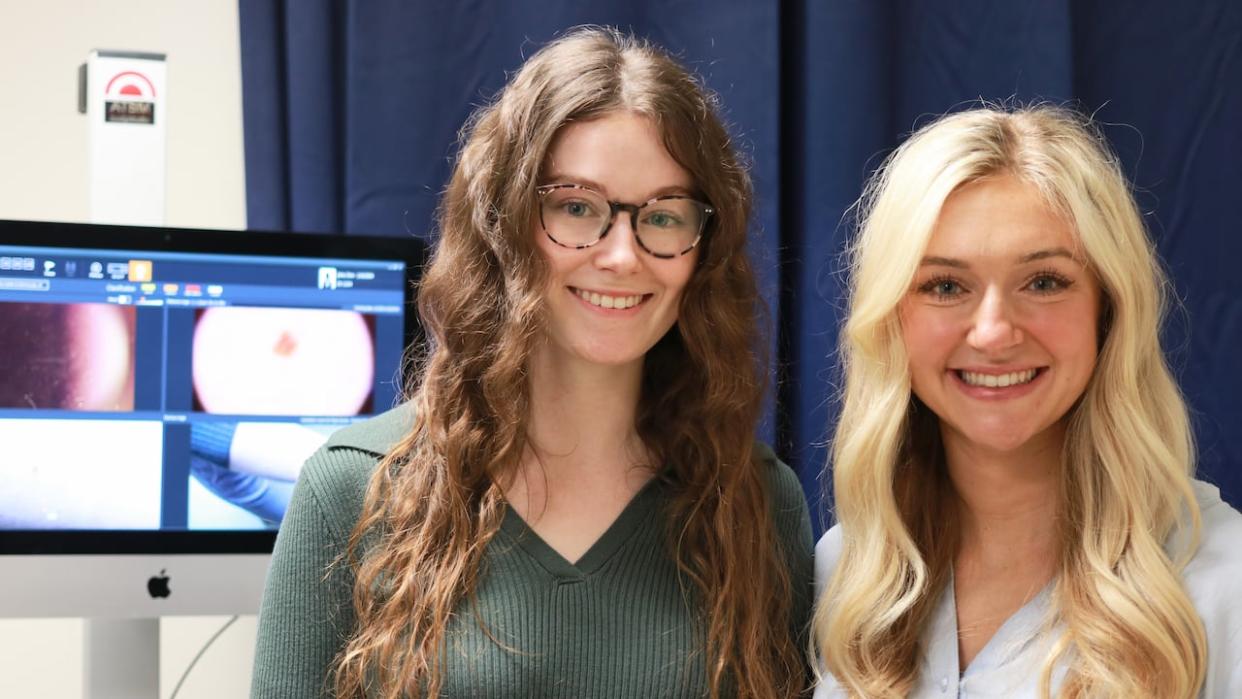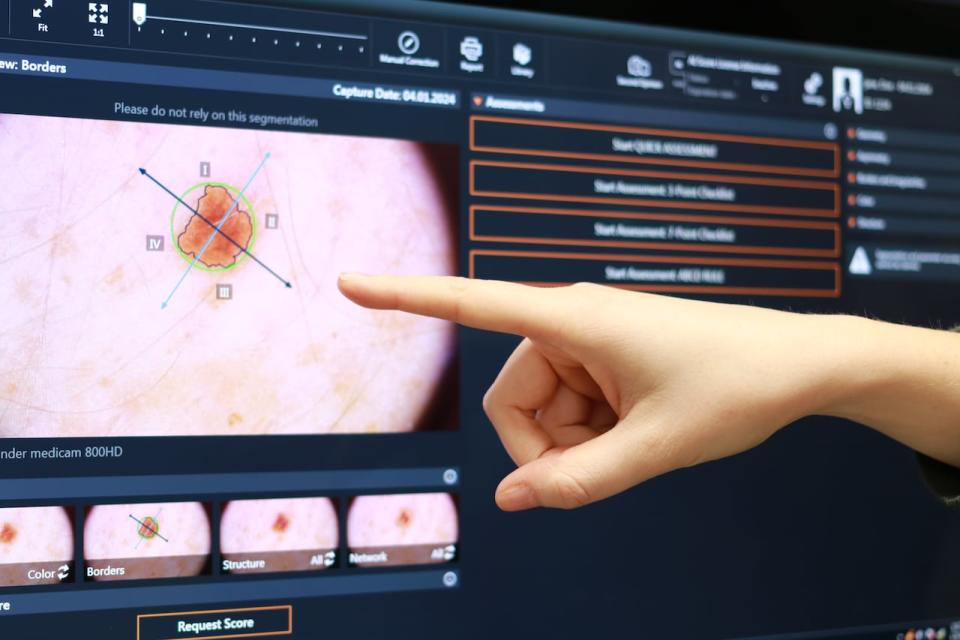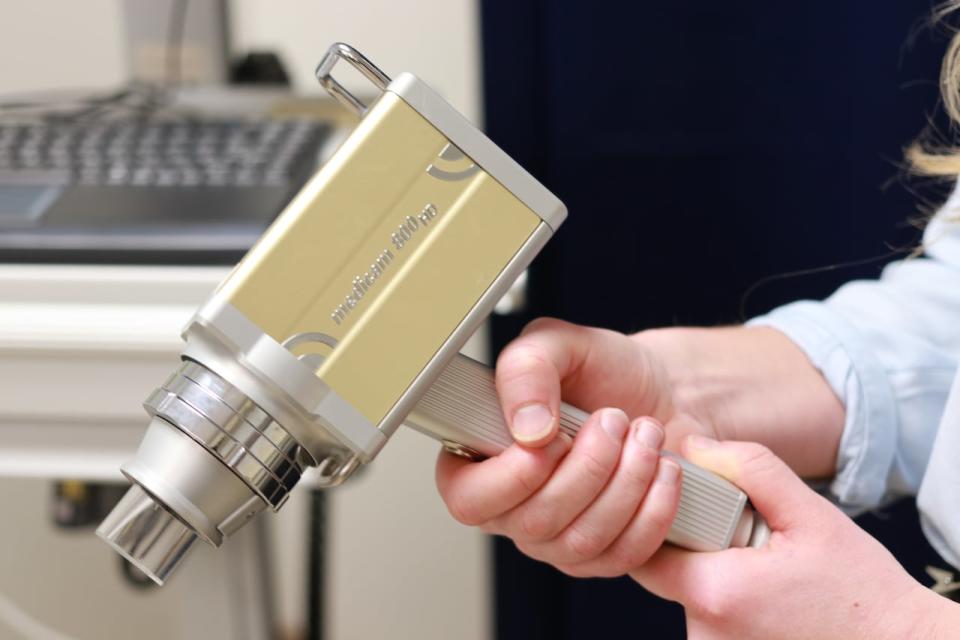Artificial intelligence could help people in N.S. detect skin cancers earlier, study says

A new peer-reviewed Dalhousie University study found that artificial intelligence (AI) could help detect skin cancers before they become serious, aiding the fight against the disease in Nova Scotia — which has one of the highest rates of deadly skin cancer in Canada.
Researchers recruited people over the age of 18 who were concerned about lesions, like moles, on their skin. For participants meeting certain criteria, images of the lesions were taken and uploaded to an AI system called FotoFinder, which is made by Germany-based FotoFinder Systems Inc.
The AI algorithm then provided an analysis of whether a lesion was cancerous and required removal. Four dermatologists — physicians who specialize in treating skin, nail and hair diseases — also independently evaluated the images and provided their own analysis without knowing the AI result. Lesions identified as harmful by either the AI or the dermatologists were removed.
The study found "the ability for the FotoFinder [AI] to be able to … detect skin cancers like melanoma was comparable and adequate to that of experienced dermatologists," said Madeleine Crawford, the paper's lead author and a third-year Dalhousie medical student.

An image from FotoFinder's mole analysis system. (Andrew Lam/CBC)
According to the study, a lack of access to primary health care practitioners and specialists mean many Nova Scotians face barriers to detecting melanoma in its early stages. AI could improve that.
"We want to make sure that patients have proper access to this care and that we don't miss melanomas … because it's very curable if caught early," said Rachel Dorey, also a third-year Dalhousie medical student and co-author of the paper.
The AI system — which uses a specialized camera that can see deeper skin structures not visible to the eye — and dermatologists evaluated nearly 400 lesions from 318 patients who self-referred themselves to be part of the study. In total the study found 17 cancers, 11 of which were melanoma.
Melanoma is considered the deadliest form of skin cancer because it can spread to other parts of the body if left untreated.
While there were some instances of cancer the AI missed, Crawford said this is expected for any screening tool. "Of the six melanomas that the artificial intelligence had missed, all of the dermatologists who were in the study also missed three to five of those," she said.

The FotoFinder system uses a specialized camera to take images of skin lesions. (Andrew Lam/CBC)
There are limitations with the FotoFinder system. For example, Crawford said it currently cannot accurately assess lesions on hairy parts of the body, or for people with darker skin tones. CBC News asked FotoFinder Systems Inc. for comment on why this is, but did not receive a response in time for publication.
"We hope that this technology will continue to improve and be able to scan those darker skin tones as well because we are very diverse here in Nova Scotia," Dorey said.
While the AI system was only used as part of the study, researchers envision that it could be distributed to hospitals or cancer care centres where people could make appointments and have lesions scanned by a health care practitioner trained with the tool.
"The entire appointment would only take a few minutes and you would be able to screen numerous people during the day," Crawford said. The screening could decrease the health care costs that come with diagnosing melanomas too late.
Dorey said the hundreds of people who volunteered for the study show that "people really are concerned about their skin and want access to be able to know … they don't need to be concerned."
MORE TOP STORIES

